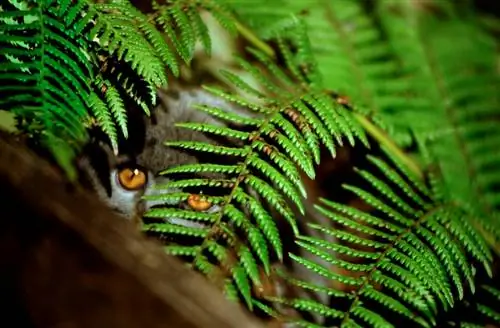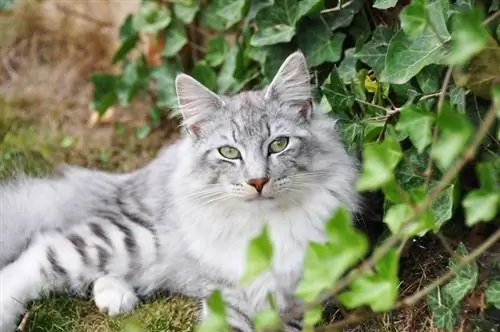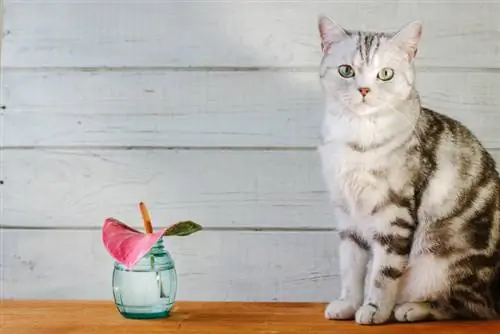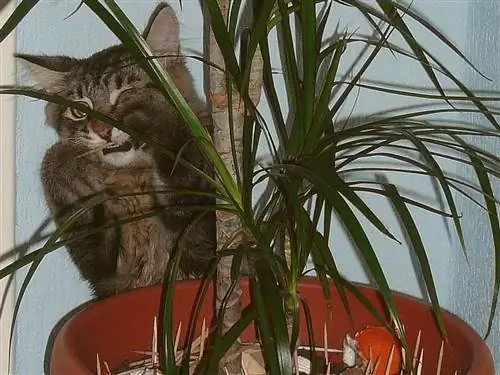- Author admin leonars@hobbygardeners.com.
- Public 2023-12-16 16:46.
- Last modified 2025-01-23 11:20.
Many cats like to nibble on green plants. Therefore, a rubber tree may not be your first choice as a houseplant because it is considered mildly poisonous. If you do decide to grow this decorative plant, give it a suitable location.

Is the rubber tree poisonous to cats?
Rubber trees are slightly toxic to cats and can cause diarrhea, vomiting and mucous membrane irritation if consumed. To prevent poisoning, place the rubber tree out of your cat's reach and offer cat grass instead.
Warm temperatures of around 20 °C are very good for the rubber tree, in winter it can be a little cooler, but always without drafts and, if possible, not below 15 °C. It is also very important that your rubber tree is in a bright place, because it needs a lot of light.
What can I do if I am poisoned?
Of course, it's best if your cat never tries to eat from your rubber tree. However, the only way to prevent it is to place it out of the animal's reach. If your cat has nibbled on the plant, take it to the vet to be on the safe side. Possible symptoms of poisoning include mucous membrane irritation, vomiting and diarrhea.
You usually don't have to worry too much, because for a serious illness your cat would have to eat quite a lot of the easy-care rubber tree. However, an intelligent animal quickly notices that the plant does not taste good and is harmful to it. There will certainly not be a second attempt at eating. It may also be helpful to place cat grass where your cat will nibble.
Symptoms of poisoning:
- Diarrhea
- Vomiting
- Mucosal irritations
Tip
Place your rubber tree out of your cat's reach. If she has nibbled on a leaf, see your vet just to be on the safe side.






